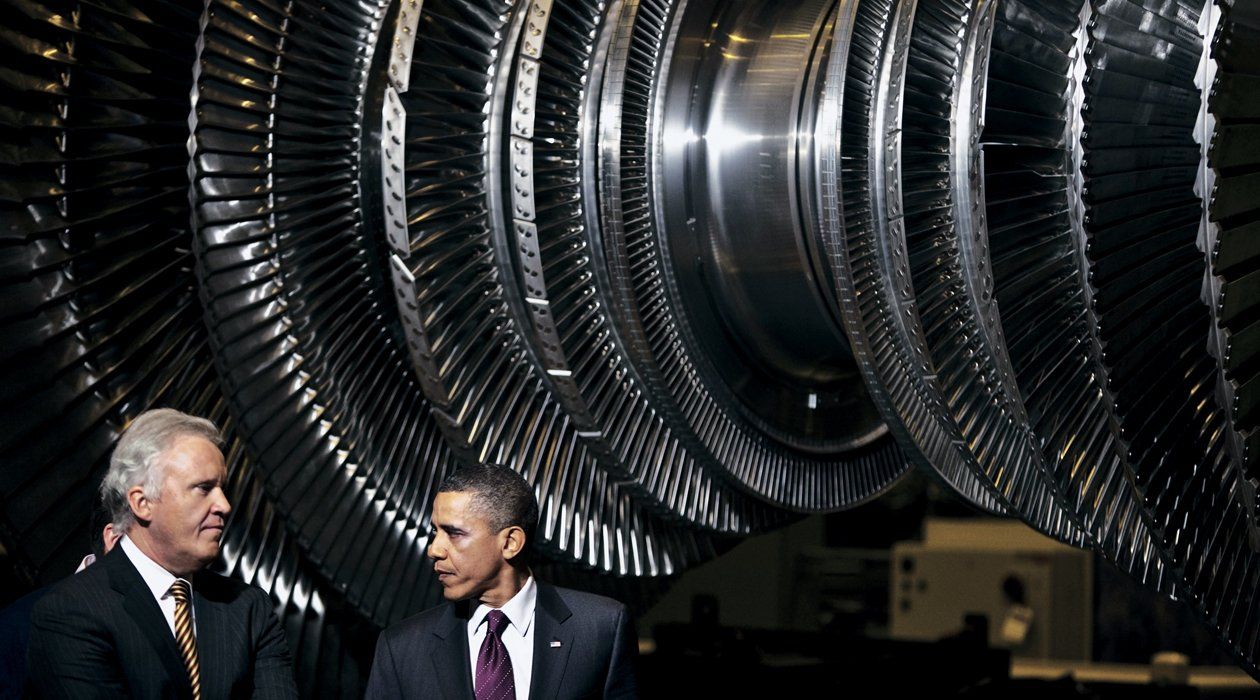
In the congressional budget showdown, all the maneuvering has been about what to cut—as if we won't also need higher taxes to curb deficits. A glaring reminder of that came with the news that General Electric—with $14.2 billion in worldwide operating profits in 2010—owes no U.S. corporate taxes for the year. Gulp. The story, first reported in The New York Times, surely caused heartburn in the White House, because President Obama has named GE CEO Jeffrey Immelt as head of the President's Council on Jobs and Competitiveness. Well, GE seems plenty competitive in tax avoidance. The question is, can we do anything about it?
The answer is yes, but the right response is counterintuitive. It's not to raise taxes on multinational companies, but to lower them. To offset that tax loss, we should increase individuals' taxes on corporate dividends and capital gains (profits from sales of stock or property). They enjoy a ridiculously low top rate of 15 percent—a giveaway to the rich that makes no sense as economic policy. The wealthiest 1 percent receives two thirds of capital gains and dividends.
The Times story focused on two separate issues:
First, GE's U.S. taxes. No one's accused the company of anything illegal. It reported a pretax profit of $5.1 billion on its U.S. operations for 2010 but said previous losses eliminated U.S. tax liability. Those losses stemmed from the financial crisis and were incurred by GE Capital, a subsidiary that makes loans. It's also worth noting that GE hasn't fully recovered from the crisis. In 2010, global profits were 44 percent lower than in 2007.
Next, GE's tax avoidance. GE annually files tax returns in 250 global jurisdictions; its tax department has a staff of 975. Like many multinationals, it aggressively strives to steer foreign profits into countries with low taxes; as long as these profits stay abroad, they are not taxed by the United States.
Note that GE's status as a multinational didn't eliminate its 2010 U.S. taxes; that resulted from the financial crisis. But GE's multinational status does pose a public-policy issue: How to deal with these footloose firms?
Love them or hate them, multinationals are here to stay. By 2008, IBM, Caterpillar, and all U.S. multinationals had invested $3.2 trillion abroad; meanwhile, Toyota, Siemens, and other foreign companies had invested $2.2 trillion here. Waging war against multinationals is senseless. As Dartmouth economist Matthew Slaughter notes, they represent a huge source of well-paid jobs and advanced technology. Indeed, countries compete for them by cutting corporate tax rates. Ireland's is a puny 12.5 percent.
We've ignored this competition. Our top corporate tax rate of 35 percent is one of the highest. Europe's average is closer to 25 percent. Meanwhile, successive presidents and Congresses cut the capital-gains rate from 28 percent under President Reagan to 20 percent and then 15 percent. In 2003, Congress cut the rate on dividends, once taxed as ordinary income, to 15 percent.
That's all backward, say three economists from the non-partisan Tax Policy Center. We should lower the tax on corporations. That would make the United States more attractive to U.S. and foreign multinationals. We should then raise taxes on the people who receive the benefits of corporate profits. The economists suggest cutting the corporate rate to 26 percent and increasing the capital-gains rate to 28 percent; dividends would be taxed as ordinary income. If done properly, this switch would create jobs, lower tax avoidance, and cut budget deficits. Eliminating unwarranted business tax breaks could raise extra revenues.
The scandal is not that GE is paying no U.S. taxes in 2010; that will be temporary. The scandal is that we're not facing the realities of globalized business. Many factors influence where companies expand: wages, local markets, government regulations. But if we remove one factor—taxes—we're crippling our ability to compete for global business.
Uncommon Knowledge
Newsweek is committed to challenging conventional wisdom and finding connections in the search for common ground.
Newsweek is committed to challenging conventional wisdom and finding connections in the search for common ground.





